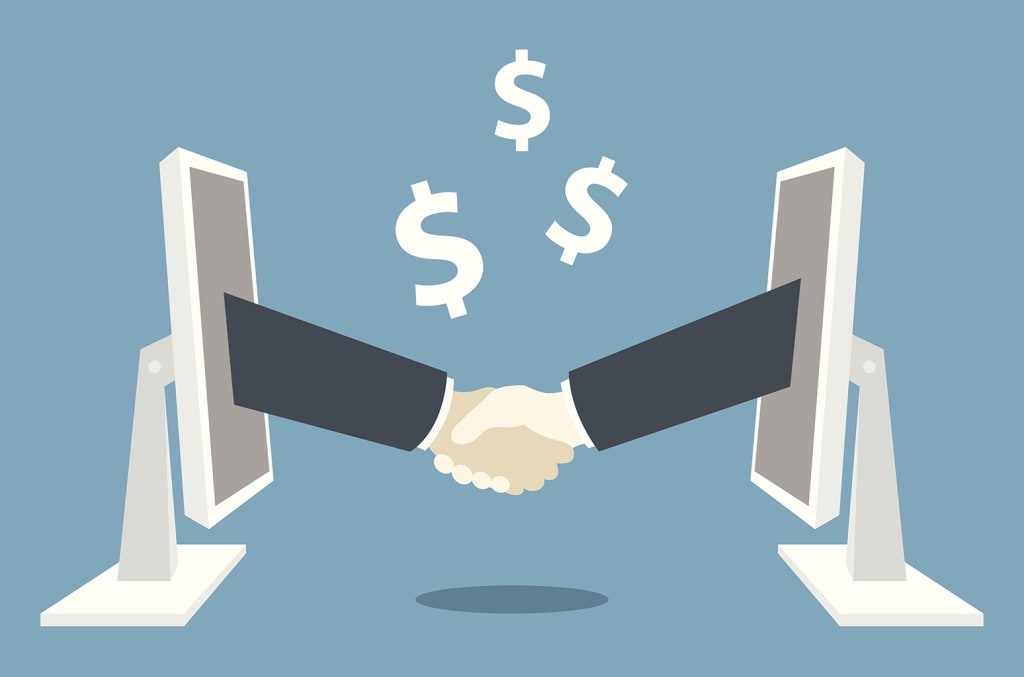Why Smart Contracts Will Bring Blockchain to the Masses
Make no mistake about it, smart contracts will bring blockchain to the masses—here's why it's the key to unlocking Bitcoin's full mainstream potential.

Bitcoin always had potential to be big, but not many people could have foreseen how big it has become. With the current trading price being as high as $10,000 on a normal day, it's clear that people can and do see the value that blockchain currency can offer.
Blockchain currencies like Bitcoin pose unlimited potential in the world of finance—as well as in the way the web functions. It's a technology that transcends borders and offers security, rapid transactions, as well as greater transparency all in one package.
Though the potential for blockchain architecture is great, there have been many drawbacks that kept it from being widely accepted by the mainstream. Many of the reasons why it hasn't caught on, though, can be solved with smart contracts.
For those not in the know, smart contracts are automated codes that act similarly to lawyers in a blockchain transaction. They automatically act out the terms of the transaction based on an "if-then" waterfall model.
If you look at what experts have to say, it's clear that smart contracts will bring blockchain to the masses. Here's how...
They make it possible to expand blockchain's usage.

Blockchain has already proven itself to be a very versatile form of technology with hundreds of applications. With smart contracts, many transactions that would never have been deemed possible (or rational) with blockchain are now doable.
Smart contracts offer higher transparency and safer exchanges, simply by design. This allows for larger purchases to be made, without much room for misconceptions or potential for dispute.
They instill trust in blockchain transactions.
Smart contracts are a perfect way to get people to have faith in transactions and ensure that the highest amount of honesty is used throughout the transaction.
They add a new layer of security, and depending on the country where the transaction occurred, may even offer a form of legal backing to a transaction.
With smart contracts, both the buyer and the seller in the transaction have to be in accord in order for the smart contract to approve their transaction. This means that the days of "what-ifs" in blockchain may soon end up being gone for good.
Trust has been an issue with many mainstream users—and that's precisely why smart contracts will bring blockchain to the masses.
They allow people to save money on legal fees.
The most obvious reason why smart contracts will bring blockchain to the masses is that it's a huge money saver. Smart contracts allow people to avoid disputes, get the neutral third party they need, and also ensure that the transaction goes the way it's supposed to go.
Lawyer fees that typically cover these kinds of transactions are very pricey. A well-written smart contract would help avoid lawyer fees while still having the same final outcome.
Smart contracts can also act as a form of escrow.
It's no secret that a lot of high-end transactions require escrow accounts, primarily due to the high risk they have in resulting in disputes. Escrow accounts have been the classic "middle men" in the real estate transaction world, as well as the highly-sensitive transaction world.
Escrow accounts are needed because of the need to have a neutral third party oversee the fairness of the transaction. Smart contracts can offer an automated form, and even be set up to disburse money when certain conditions are met.
In the case where transactions need an escrow account, a properly written smart contract can function as a makeshift escrow account. The only thing is that, rather than a traditional escrow, the collateral that's posted in a smart contract may not just be monetary in nature.
Smart contracts also simplify the complex.
One of the bigger reasons why blockchain hasn't caught on is because it's complex. Smart contracts allow people to have transactions in plain English, without the need to understand volumes of technical jargon to do so.
Simply put, smart contracts will bring blockchain to the masses because they give a nice, welcoming platform for easy-to-understand peer to peer transactions.
Since smart contracts help increase trust in transactions, they also may be able to help overcome institutional skepticism.
The biggest detractors to blockchain technology have been governing bodies—primarily because they've proven to have a lot of risks in the past. (To be fair, Bitcoin has a reputation for being criminal currency thanks to its past ties to the Dark Web.)
With newfound trust in transactions thanks to the advent of smart contracts, governing bodies may actually have to rethink the way they see blockchain.
In the future, it could be that smart contracts will offer a legal basis for transactions, making them a very important step towards making them acceptable for mainstream use. AIG has already looked into applying smart contracts for complicated legal transactions, which says volumes for how far institutional trust has come.
Some experts also suggest that this can help make investing easier, too.
Smart contracts cut out a lot of the "bulkiness" of a typical blockchain transaction from both the supply side and the receiving end. Any time that transactions can be made easier and more efficient for all parties is a time when investing will be more attractive.
This is doubly true when the very same thing that makes investing a safer and faster endeavor also happens to be the thing you're investing in.
Simply put, smart contracts make it possible to get more people interested in investing in blockchain technology—all while showing them that blockchain technology isn't as intimidating as it once may have been.
The most interesting thing about smart contracts is how they can help financial services groups invest more efficiently.
The coolest thing about smart contracts is that they can also act like a "set and forget" stockbroker. Imagine being able to allocate more resources to a firm you wanted to invest in after they hit a milestone, all as part of the initial investment.
In theory, you actually could create a smart contract that would allow that kind of transaction.
Perhaps the most obvious benefit of a smart contract is that it allows for a lot more information to be sent during a transaction.
Smart contracts allow you to have a full scope of the terms and conditions, and also give you the opportunity to include a person's contact information, location, and relevant data alongside it.
This means smart contracts allow you to have everything you need in order to settle disputes, in the event that a smart contract doesn't quite work the way it's supposed to.
The next wave of innovation will very likely be sparked by smart contracts.
If you really think about it, smart contracts will bring blockchain to the masses in a million different ways—but the most important ways it will do so probably haven't even been imagined yet. What we're seeing right now is the very foundation of the next wave of tech breakthrough.
Who knows what smart contracts will be able to create in the future? The possibilities truly are endless, and as such, it's impossible to predict where we'll go from here.
About the Creator
Skunk Uzeki
Skunk Uzeki is an androgynous pothead and a hard partier. When they aren't drinking and causing trouble, they're writing articles about the fun times they have.






Comments
There are no comments for this story
Be the first to respond and start the conversation.